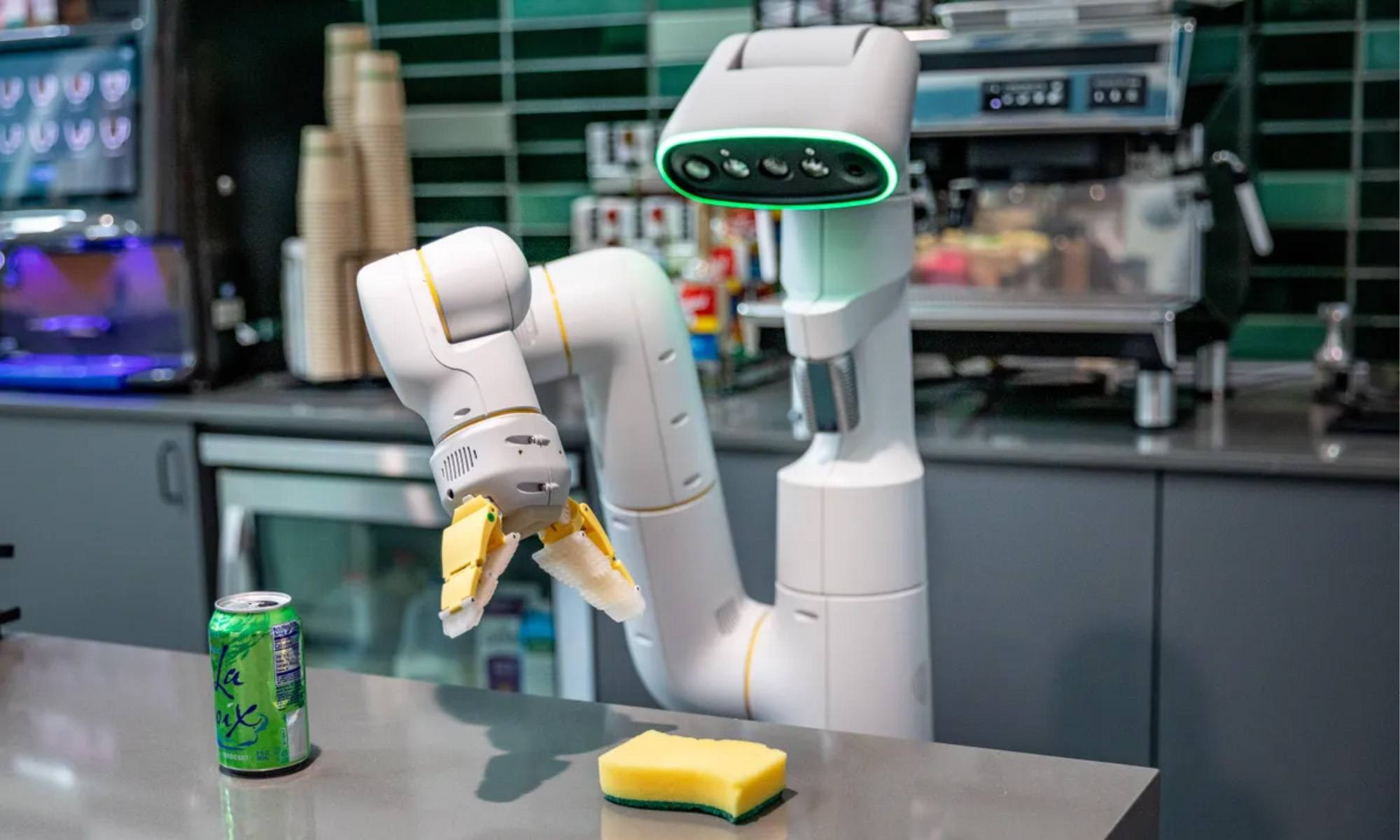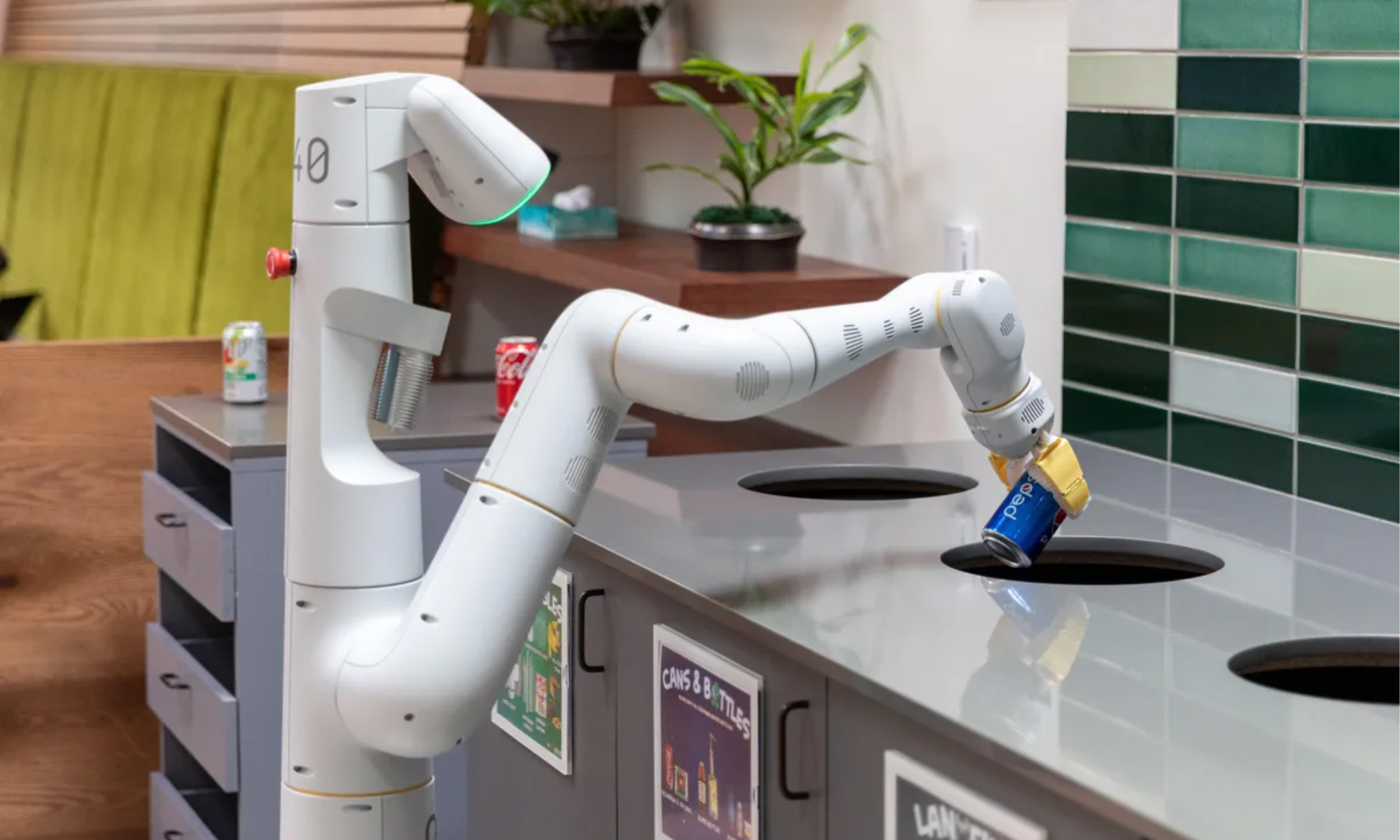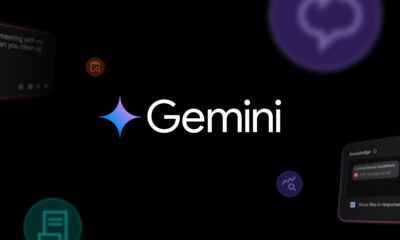News
Google Plans A Future Where Robots Think For Themselves
Google is helping robots better understand how to be helpful to humans, and the results are encouraging!

Unknown to many of its fanbase, search giant Google has been developing its own semi-secret research laboratory for over a decade. The project is known as X Developments and focuses on exciting projects such as the recent Everyday Robots collaboration.
The project emphasizes the software side of robotics, aiming to make the technology helpful to humans by optimizing robots for tasks that include finding, fetching, and sorting items, as well as training bots to be awesome at ping-pong or catching racquetballs.
Google’s latest milestone is the “Pathways Language Model,” a software solution that gives the company’s robots a better understanding of the world, helping them respond more accurately and efficiently to human requests. So far, the robot workers at Google have been set to work on less-than-glamorous tasks such as trash sorting, with the aim that eventually, they will be able to take on tasks and teach themselves on the fly. Research into seemingly useless tasks like ping-pong might seem frivolous, but these operations require speed and precision, so they help engineers tune their robot sidekicks for future requirements.

Google’s emphasis on robotic precision means that the company is unlikely to release a product for the general public any time soon. Their stance stands in sharp contrast to rival Amazon, which has already offered a product to market named Astro (albeit invite-only) — a $999 robot that seems to offer little more than basic Alexa functionality on wheels.
Also Read: Farfetch Aims To Bring Web3 To The World Of Fashion
“Google tries to be a company that provides access to information, helping people with tasks in their daily lives, you could imagine a ton of overlap between Google’s overarching mission and what we’re doing in terms of more concrete goals. I think we’re really at the level of providing capabilities, and trying to understand what capabilities we can provide,” says Vincent Vanhoucke, Google Research Robotics Lead.
Don’t expect to see a Google-themed robot appearing anytime soon, but keep an eye out for the latest developments from X Developments, as even the company’s homepage points to an exciting future for human / robot partnerships!
News
Rabbit Expands Hyperlocal Delivery Service In Saudi Arabia
The e-commerce startup is aiming to tap into the Kingdom’s underdeveloped e-grocery sector with a tech-first, locally rooted strategy.

Rabbit, an Egyptian-born hyperlocal e-commerce startup, is expanding into the Saudi Arabian market, setting its sights on delivering 20 million items across major cities by 2026.
The company, founded in 2021, is already operational in the Kingdom, with its regional headquarters now open in Riyadh and an established network of strategically located fulfillment centers — commonly known as “dark stores” — across the capital.
The timing is strategic: Saudi Arabia’s online grocery transactions currently sit at 1.3%, notably behind the UAE (5.3%) and the United States (4.8%). With the Kingdom’s food and grocery market estimated at $60 billion, even a modest increase in online adoption could create a multi-billion-dollar opportunity.
Rabbit also sees a clear alignment between its business goals and Saudi Arabia’s Vision 2030, which aims to boost retail sector innovation, support small and medium-sized enterprises, attract foreign investment, and develop a robust digital economy.
The company’s e-commerce model is based on speed and efficiency. Delivery of anything from groceries and snacks to cosmetics and household staples is promised in 20 minutes or less, facilitated by a tightly optimized logistics system — a crucial component in a sector where profit margins and delivery expectations are razor-thin.
Despite the challenges, Rabbit has already found its stride in Egypt. In just over three years, the app has been used by 1.4 million customers to deliver more than 40 million items. Revenue has surged, growing more than eightfold in the past two years alone.
Also Read: Top E-Commerce Websites In The Middle East In 2025
CEO and Co-Founder Ahmad Yousry commented: “We are delighted to announce Rabbit’s expansion into the Kingdom. We pride ourselves on being a hyperlocal company, bringing our bleeding-edge tech and experience to transform the grocery shopping experience for Saudi households, and delivering the best products – especially local favorites, in just 20 minutes”.
The company’s growth strategy avoids the pitfalls of over-reliance on aggressive discounting. Instead, Rabbit leans on operational efficiency, customer retention, and smart scaling. The approach is paying off, having already attracted major investment from the likes of Lorax Capital Partners, Global Ventures, Raed Ventures, and Beltone Venture Capital, alongside earlier investors such as Global Founders Capital, Goodwater Capital, and Hub71.























